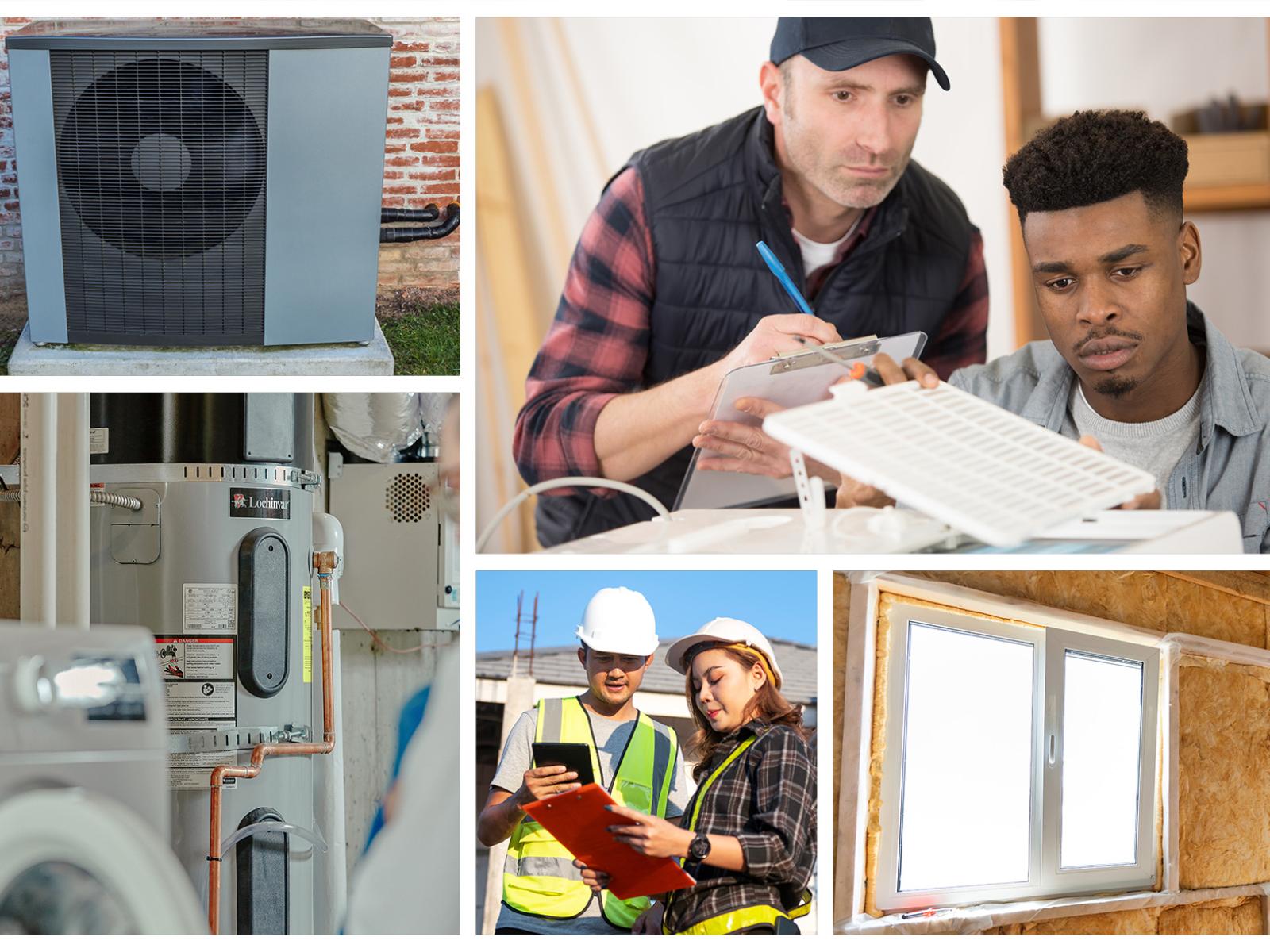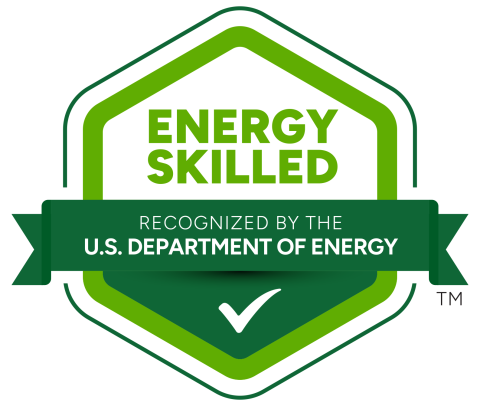- Recognition Categories
- Training Modules
- For Contractors
- Contact Information
Energy Skilled Recognition
Energy Skilled Recognition
Recognizing programs that prepare a competitive American workforce and reduce energy costs to consumers.

(Image collage created by Shannon Colson | Pacific Northwest National Laboratory)
